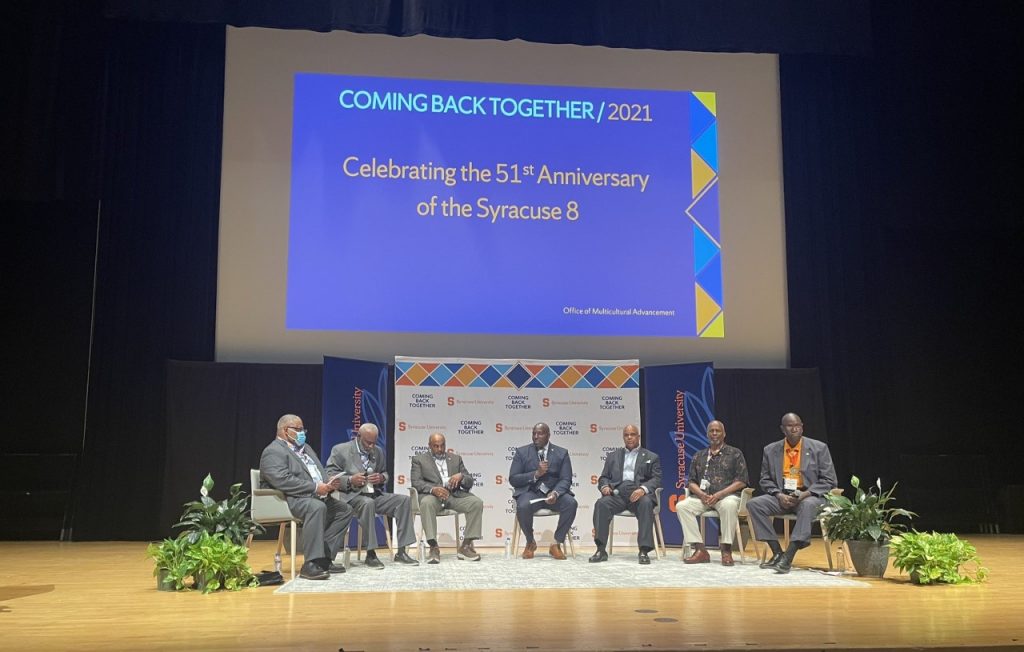51 years later, the Syracuse 8 retell their story of equality
Syracuse 8 share story 51 years later

The Syracuse 8 made a decision 51 years ago that transformed the identity of Syracuse University forever. In 1969, the eight men decided to forego their athletic careers to seek change for Blacks and other marginalized groups on campus.
Greg Allen, Ron Womack, Dana Harrell, Clarence “Bucky” McGill, A. Alif Muhammad, John Lobon, Richard Bulls, John Godbolt, and Duane “Spoon” Walker all shared the same passion. On Friday, in a panel organized by Salatha Willis and the Office of Diversity of Inclusion at SU, the men shared their motivations at Goldstein Auditorium.
“Our passion was for Syracuse,” Allen said. “We didn’t want to break it down, we wanted to build it up. You don’t destroy something you plan on being a part of in the future.”
The group of 18,19, and 20-year-old men at the time, envisioned an institution where everyone is respected. The tumultuous events of the 1960s led to an “era of identity” Lobon said. The struggle for legacy, access, dignity, and leadership resulted in the eight men becoming change agents.
At the expense of their athletic careers, the eight football players took a stand demanding equal academic support as their white teammates, better medical treatment, decisions on starting positions be made on play and not race and the addition of a black coach to the coaching staff. A Black coach was added to the coaching staff by the Chancellor of Syracuse University, John Corbally.
However, the decision to bring a Black coach felt forced because of the reluctance of Orange head coach Ben Schwartzwalder. Not all of the groups’ demands were met and a suspension was enforced.
The Chancellor issued a statement that cited the players could return to the team, but the lingering effects and continuation of racism by white coaches and teammates led to the group’s decision to not come back to the team. Although the group did not return, Corbally adamantly fought for the scholarships of the eight to be maintained. The group all received degrees from Syracuse University.
In today’s changing society, diversity is the one thing that will never go away. Carrying a grudge against the university would be a burden on himself and the group, Allen said. Forgiveness allowed him to progress in life and provide opportunities for his family.
“I look at my sacrifice as a gift to my granddaughter, who is now attending Syracuse University,” Allen said.
The experience of the men is now woven into the fabric of SU. The actions and efforts of the Syracuse 8 have led to a more progressive and community-driven campus.
“We don’t clean the board room anymore,” Lobon said. “We make decisions in them.”





